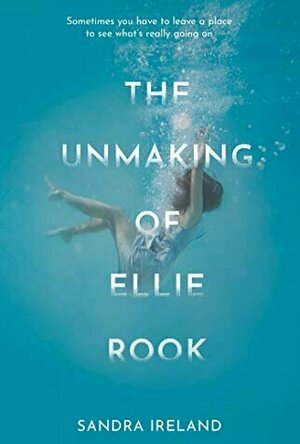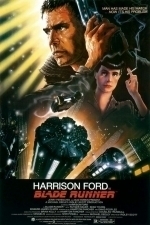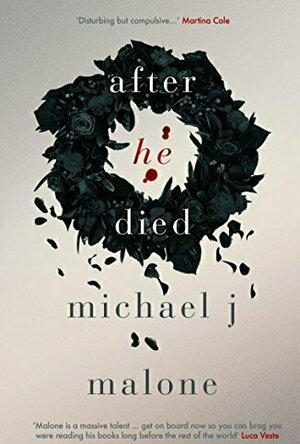Search
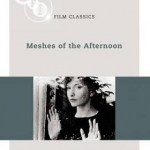
Meshes of the Afternoon
Book
?Meshes of the Afternoon (1943) is the most important film in the history of American avant-garde...

The Bigamist
Book
Directed by the actor/film-maker Ida Lupino, The Bigamist (1953) is the story of Harry Graham, a...
BookInspector (124 KP) rated The Unmaking of Ellie Rook in Books
Sep 24, 2020
The protagonist in this novel was Ellie, and the whole story was told from her perspective. Ellie comes back to her hometown after the news, that her mother drowned. But as I was going through the pages, it was clear, that Rook family is a very dysfunctional one, hiding many horrible secrets. I really liked the way the author chose her characters, they all have a story to tell, they all are interesting and play very important parts in this book. I liked the way Ellie opened up and shared her story throughout the pages. She seemed fearless but used to crumble after her father’s words. I think she represents many of those, who grew up with abusive, controlling parent.
The narrative was very fast paced, and every chapter allowed to see a little bit more of Ellie’s past, and what shaped her to be the way she is now. The topics covered in this book were emotional and physical abuse, bullying, teenage romance, controlling behaviour and many more. This book has some very cleverly written surprises and twists and was an easy and pleasant read for me.
The atmosphere of this book is very dark, gloomy and messy, filled with scrap cars, crows, and violence. I liked the writing style of this novel, it was complex and layered. The chapters were short, and the ending of this book left me very satisfied indeed. Even though a single perspective was sufficient for me, I would’ve liked to read Imelda’s thoughts as well. I don’t really know how I feel about all that folk story about Finella, it adds a nice touch to the story, but making it a core of this book wasn’t really necessary.
So, to conclude, it is a really good domestic noir, filled with complex characters and difficult situations. I really enjoyed this book and the topics it discussed, and I recommend it to people who are looking for a quick but important read. I hope you will enjoy it as much as I did. 🙂
The narrative was very fast paced, and every chapter allowed to see a little bit more of Ellie’s past, and what shaped her to be the way she is now. The topics covered in this book were emotional and physical abuse, bullying, teenage romance, controlling behaviour and many more. This book has some very cleverly written surprises and twists and was an easy and pleasant read for me.
The atmosphere of this book is very dark, gloomy and messy, filled with scrap cars, crows, and violence. I liked the writing style of this novel, it was complex and layered. The chapters were short, and the ending of this book left me very satisfied indeed. Even though a single perspective was sufficient for me, I would’ve liked to read Imelda’s thoughts as well. I don’t really know how I feel about all that folk story about Finella, it adds a nice touch to the story, but making it a core of this book wasn’t really necessary.
So, to conclude, it is a really good domestic noir, filled with complex characters and difficult situations. I really enjoyed this book and the topics it discussed, and I recommend it to people who are looking for a quick but important read. I hope you will enjoy it as much as I did. 🙂
Nick Friesen (96 KP) rated Blade Runner (1982) in Movies
Jul 13, 2017
Dark and gorgeous setting (4 more)
Harrison Ford
Thought-provoking premise
That moody Vangelis score
Rutger Hauer
Best in Class Cyberpunk Neo-Noir
Most Sci-Fi fans these days probably rank Blade Runner somewhere in their top five favorites. Its status and influence on Sci-Fi, especially in the Cyberpunk sub-genre, is undeniable. When it was first released in 1982, however, it was not so well appreciated. It was met with polarized reviews and underwhelming domestic box office figures. This was probably due to some misplaced expectations of the movie. The studio erroneously marketed Blade Runner as an action/adventure, and not to mention, Harrison Ford was riding the fame of another Sci-Fi franchise that was much more action-oriented. It's no surprise then, that audiences and critics alike were initially turned off by the slow-burn pacing of detective noir that Blade Runner pulled into a science fiction setting. Today, Blade Runner is a celebrated masterpiece of filmmaking and adored by fans around the world. However, with a sequel coming soon, those new to the franchise might be a little confused due to the existence of multiple versions of the film. Let's clear that up a bit.
Fast-forward ten years to 1992, when the world received the Director's Cut of the film. At the time, Blade Runner had picked up in popularity through video rental and the international market, and the studio was prompted to release an official Director's Cut after an unofficial version was being made available from a workprint. The Director's Cut was the first introduction to Blade Runner for a whole new generation, including myself.
Fast-forward fifteen more years to 2007, when Ridley Scott brought Blade Runner fans his definitive version of the movie, the Final Cut. Blade Runner: The Final Cut was digitally remastered and reworked by Ridley Scott with complete artistic freedom, whereas the Director's Cut was created by the studio without his involvement. This version fixes some technical problems that persisted from the theatrical version to the Director's Cut, and adds back a little story to better fulfill Ridley Scott's original vision for the film.
If you're looking to get into Blade Runner before Blade Runner 2049 hits theatres in October, the Final Cut is probably the best place to start. It offers the most cohesive viewing experience, complete with restored visuals. Believe me when I tell you there is no movie quite like Blade Runner. Watching Rick Deckard (Harrison Ford) track down and "retire" replicants on the streets of a dystopian Los Angeles awash in neon signs never ceases to fill me with awe. Rutger Hauer's performance as the main antagonist, Roy Batty, is both chilling and thought-provoking, making viewers question what being human truly means.
Blade Runner is now widely considered to be not just the first example of Cyberpunk in film, but also the best. And for good reason, as every frame is a work of art, and the philosophical questions it first posed 35 years ago are still being debated today. Us die-hard fans can only pray the upcoming sequel doesn't completely obliterate the mystery and pathos of the replicant condition.
Fast-forward ten years to 1992, when the world received the Director's Cut of the film. At the time, Blade Runner had picked up in popularity through video rental and the international market, and the studio was prompted to release an official Director's Cut after an unofficial version was being made available from a workprint. The Director's Cut was the first introduction to Blade Runner for a whole new generation, including myself.
Fast-forward fifteen more years to 2007, when Ridley Scott brought Blade Runner fans his definitive version of the movie, the Final Cut. Blade Runner: The Final Cut was digitally remastered and reworked by Ridley Scott with complete artistic freedom, whereas the Director's Cut was created by the studio without his involvement. This version fixes some technical problems that persisted from the theatrical version to the Director's Cut, and adds back a little story to better fulfill Ridley Scott's original vision for the film.
If you're looking to get into Blade Runner before Blade Runner 2049 hits theatres in October, the Final Cut is probably the best place to start. It offers the most cohesive viewing experience, complete with restored visuals. Believe me when I tell you there is no movie quite like Blade Runner. Watching Rick Deckard (Harrison Ford) track down and "retire" replicants on the streets of a dystopian Los Angeles awash in neon signs never ceases to fill me with awe. Rutger Hauer's performance as the main antagonist, Roy Batty, is both chilling and thought-provoking, making viewers question what being human truly means.
Blade Runner is now widely considered to be not just the first example of Cyberpunk in film, but also the best. And for good reason, as every frame is a work of art, and the philosophical questions it first posed 35 years ago are still being debated today. Us die-hard fans can only pray the upcoming sequel doesn't completely obliterate the mystery and pathos of the replicant condition.
BookInspector (124 KP) rated After He Died in Books
Sep 24, 2020
The main protagonist in this novel is Paula, a middle-class housewife, who just became a widow. A young woman – Cara, is trying to shine a different light on Paula’s deceased husband Thomas. This novel is told from two different perspectives – Paula’s and Cara’s. This book is soaked with grief, both of these characters lost people in their past, and they are still dealing with their grief. I really liked Paula in this book. I could feel her pain and her confusion, and to be honest, I was confused with her because all those little clues and words left me as much baffled as Paula herself. I really wanted to like Cara in this novel, but I couldn’t bond with her. I did like what she represented and I did like her attitude, but I couldn’t warm up to her.
The narrative of this novel is very masterfully delivered. It covers a really wide spectrum of events: we have a domestic noir, filled with family relationships and grief, and at the same time we have murders and mystery which are unfolding very slowly. I really liked the topics M. Malone discussed in this book, such as poverty and homelessness; how people deal with grief and what death brings to the families; drugs and how it influences people and their future, etc. I think this novel is more character driven than the investigation itself, but all these talks about feelings and sadness were too much for me at times, I wanted more pace and more unexpected findings. 🙂 Don’t get me wrong, there were plenty of surprises and twists, but I needed more. 😀
I really enjoyed M. Malone’s writing style, it is a very well crafted novel, and his way of sharing Scottish lingual nuances was absolutely adorable and I really liked them. 🙂 This book has a very strong “rich vs. poor” accent, and the setting is changing between luxury, wellness, and shady areas with homeless people, and I found it very well balanced in this book. The chapters were pretty short, and the whole novel was quick and easy to read. The ending of this book rounded this novel very well and it did leave me satisfied. So, to conclude, this is a very sensitive novel, where the pain after someone’s death is very raw and haunting, but at the same time, it is a great thriller filled with very realistic and casual characters and a very unexpected plot. I really liked this novel, and I hope you will give this book a try and enjoy as much as I did.
The narrative of this novel is very masterfully delivered. It covers a really wide spectrum of events: we have a domestic noir, filled with family relationships and grief, and at the same time we have murders and mystery which are unfolding very slowly. I really liked the topics M. Malone discussed in this book, such as poverty and homelessness; how people deal with grief and what death brings to the families; drugs and how it influences people and their future, etc. I think this novel is more character driven than the investigation itself, but all these talks about feelings and sadness were too much for me at times, I wanted more pace and more unexpected findings. 🙂 Don’t get me wrong, there were plenty of surprises and twists, but I needed more. 😀
I really enjoyed M. Malone’s writing style, it is a very well crafted novel, and his way of sharing Scottish lingual nuances was absolutely adorable and I really liked them. 🙂 This book has a very strong “rich vs. poor” accent, and the setting is changing between luxury, wellness, and shady areas with homeless people, and I found it very well balanced in this book. The chapters were pretty short, and the whole novel was quick and easy to read. The ending of this book rounded this novel very well and it did leave me satisfied. So, to conclude, this is a very sensitive novel, where the pain after someone’s death is very raw and haunting, but at the same time, it is a great thriller filled with very realistic and casual characters and a very unexpected plot. I really liked this novel, and I hope you will give this book a try and enjoy as much as I did.
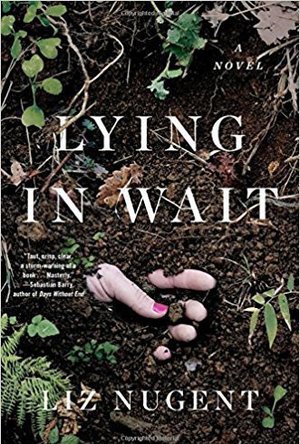
Lying in Wait
Book
Sunday Times Top 10 Bestseller! Featured in the Richard and Judy Spring 2017 Book Club 'Gone Girl...
